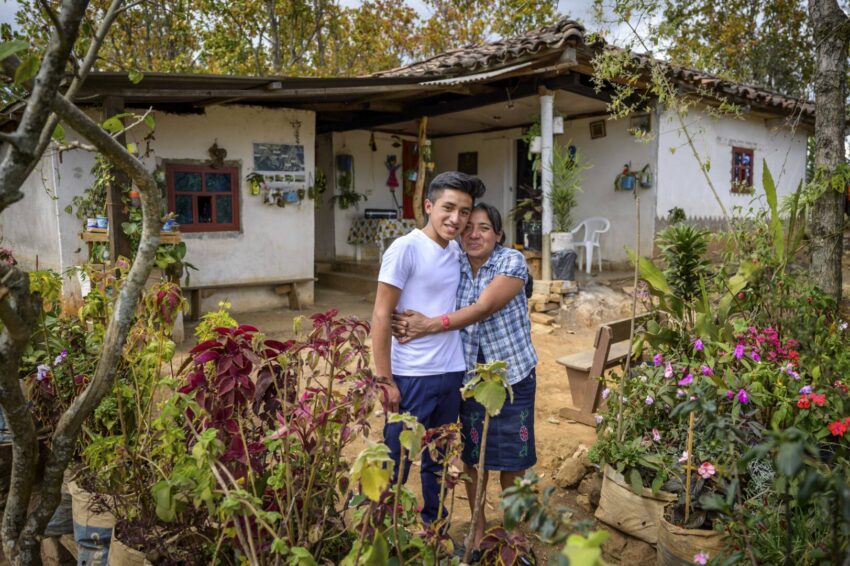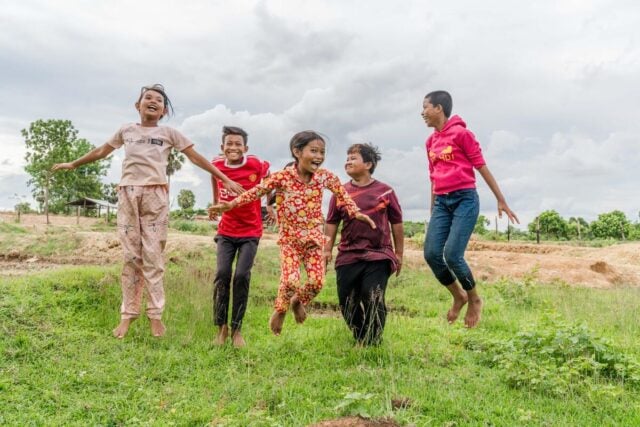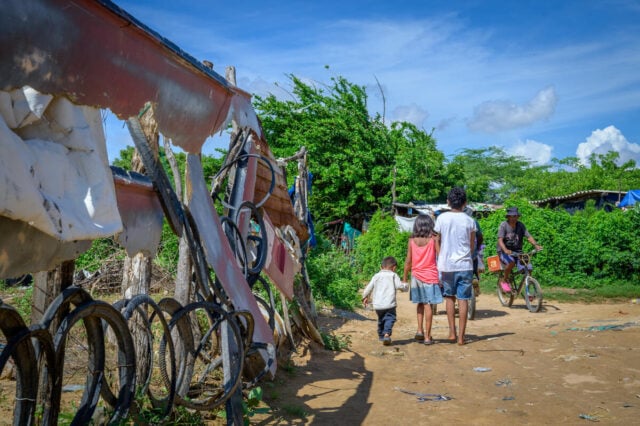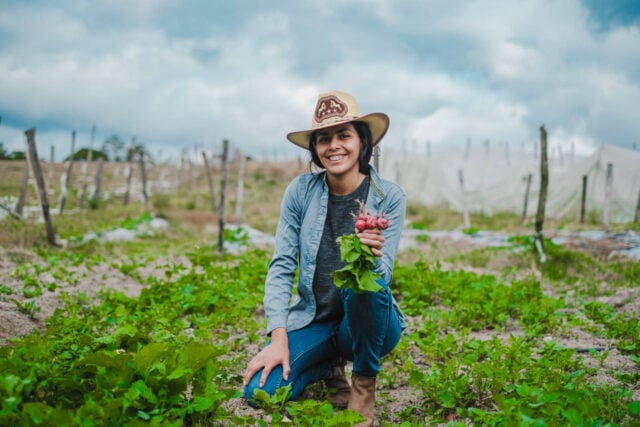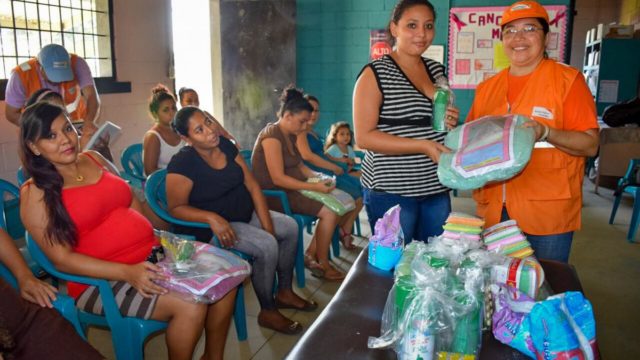Sixteen-year-old Ever sits down to his mother’s home-cooked breakfast of beans, eggs, and tortillas by 6 a.m., then dashes off to school at the Lenca Institute, a 35-minute walk away in Yamaranguila, Honduras. He’s looking forward to his first day of 11th grade and getting back to agroforestry studies and band.
Ever’s parents’ education ended with high school, but he expects to go on to university. His parents are thrilled and confident about his prospects. Higher education is not just a dream, Ever says, it’s his plan. He knows he can work to make his dreams come true. Ever’s parents also have plans and dreams for their family and their community. His mom, Carmen, 47, a World Vision–trained volunteer health monitor, is now training her daughters and other young moms to assist in child health services. Ever’s dad, Francisco, 50, is a church lay leader who holds services on weekdays and teaches classes from a World Vision curriculum on parenting with love.
“In our community, World Vision is linked to development in so many different areas,” Francisco says.
Since the mid-1990s, World Vision has worked through child sponsorship to help people build better lives in Yamaranguila municipality, which encompasses more than 60 communities and has the highest concentration of Lenca people in Honduras. About 100,000 strong, the Lenca are the country’s largest Indigenous group, living primarily in southwest and eastern El Salvador. They have long experienced discrimination and a series of challenges including entrenched poverty, lack of education, denial of land rights, climate and environmental losses, broken families as parents migrate to find work, and violence, especially in the home.
Sponsor a child to make a lasting difference.
In 2013, we introduced you to 12-year-old Selvin, who built a model of Yamaranguila to share with neighbors. He used the model to show them how their lives could improve — and that they could make it happen. Using materials like cardboard, pine needles, and popsicle sticks, he crafted the familiar landscape and buildings: church, school, thatch-roofed homes. Then he showed how the village could be transformed: Add a latrine and running water for every house. Replace the thatched roofs with leak-proof metal. Put animals in pens to keep the environment cleaner. Selvin is a 19-year-old university student now, and his example empowers Ever and other kids to dream, plan, study, and give back to their community.
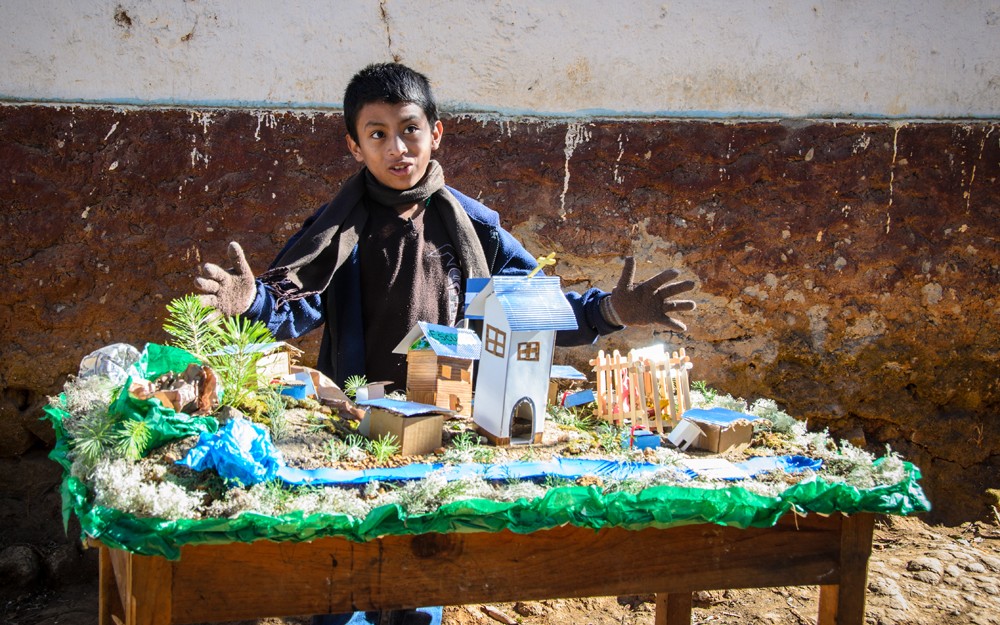
Selvin’s vision of a better life, like Ever’s, grew out of World Vision sponsorship, which helped to lift the sights and the lives of his community. Selvin explained then, “The sponsor sends the seed. World Vision is the farmer who plants it, and that yields fruit. I am the fruit of that seed. And thanks to World Vision who planted the seed, it has awoken the fruit inside of me and other children.”
Child sponsorship and other World Vision programs have supported social, physical, and spiritual renewal in Yamaranguila. Our work is bearing fruit there in the lives of children and adults who are stepping up as community builders.
Social changes undergird development
Ever and three of his high school bandmates, 16-year-olds Alejandro, Sarai, and Gloria, are not just musicians — they’re student leaders and achievers. As veterans of the 35-member ensemble founded in 2017, they represent their school, the Yamaranguila community, and the Indigenous Lenca people by playing spirited and soulful music at public events as far away as the national capital of Tegucigalpa, about 125 miles from the community.
They speak through their instruments: thoughtful Ever playing trumpet, lively Alejandro on drums, serious Sarai playing a solid trombone, and Gloria’s clarinet winding a melody in the higher register. The band is a metaphor for the community organizing and working in harmony with others — sometimes you step out front to play a solo and lead, and other times you blend into the chorus.
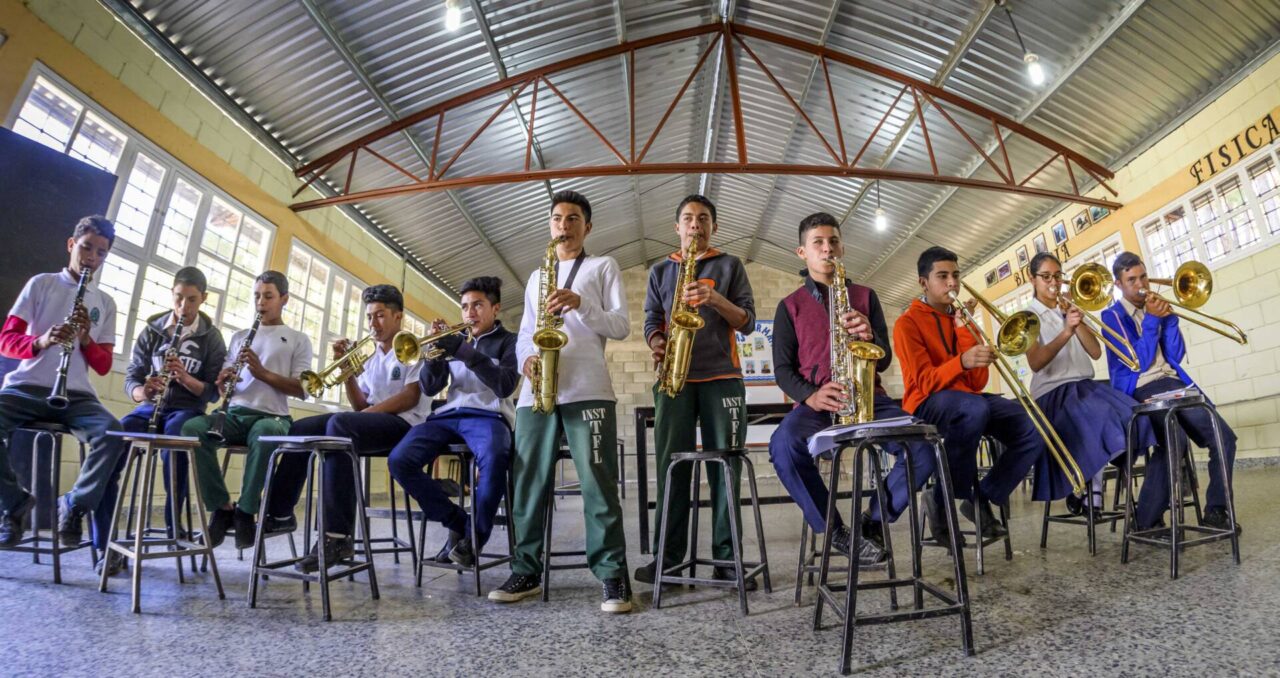
“I hope with this music, our students will be agents of change in our communities,” says Evaristo Menjivar, a teacher at the Lenca Institute who helped start the band to promote Lenca heritage.
The Lenca Institute and other community organizations are bringing back traditional clothing, food, and crafts to instill pride in the strength and resilience of Lenca ways. The institute offers programs in traditional arts and crafts, and students grow vegetables in kitchen gardens. Secondary students like Ever concentrate in accounting and finance, science and humanities, agroforestry, auto mechanics, or community development. Each curriculum connects directly to employment opportunities in the local economy. And students who want to go on to higher education are prepped, encouraged, and often helped with funding through the municipality.
World Vision is a major supporter of the secondary school, having supplied books, science equipment, building materials, teacher training, and the first instruments for the band. “We’ve worked together many years for many different projects that raise youth development,” says Evaristo.
Ever and his peers don’t take their high school education for granted. Few of their older siblings or parents went beyond secondary school, if they graduated at all. For the most part, their grandparents had even less education. Nationally, fewer than 65% of Honduran students graduated from secondary school in 2017, according to the most recent U.N. data. Intibuca, the department (state) where Ever’s family lives, has an even lower graduation rate — only 26%. There are plenty of reasons: deep poverty, a lack of schools, transportation challenges, and the fact that formal education has not always been valued in the Lenca culture, which dominates around Yamaranguila.
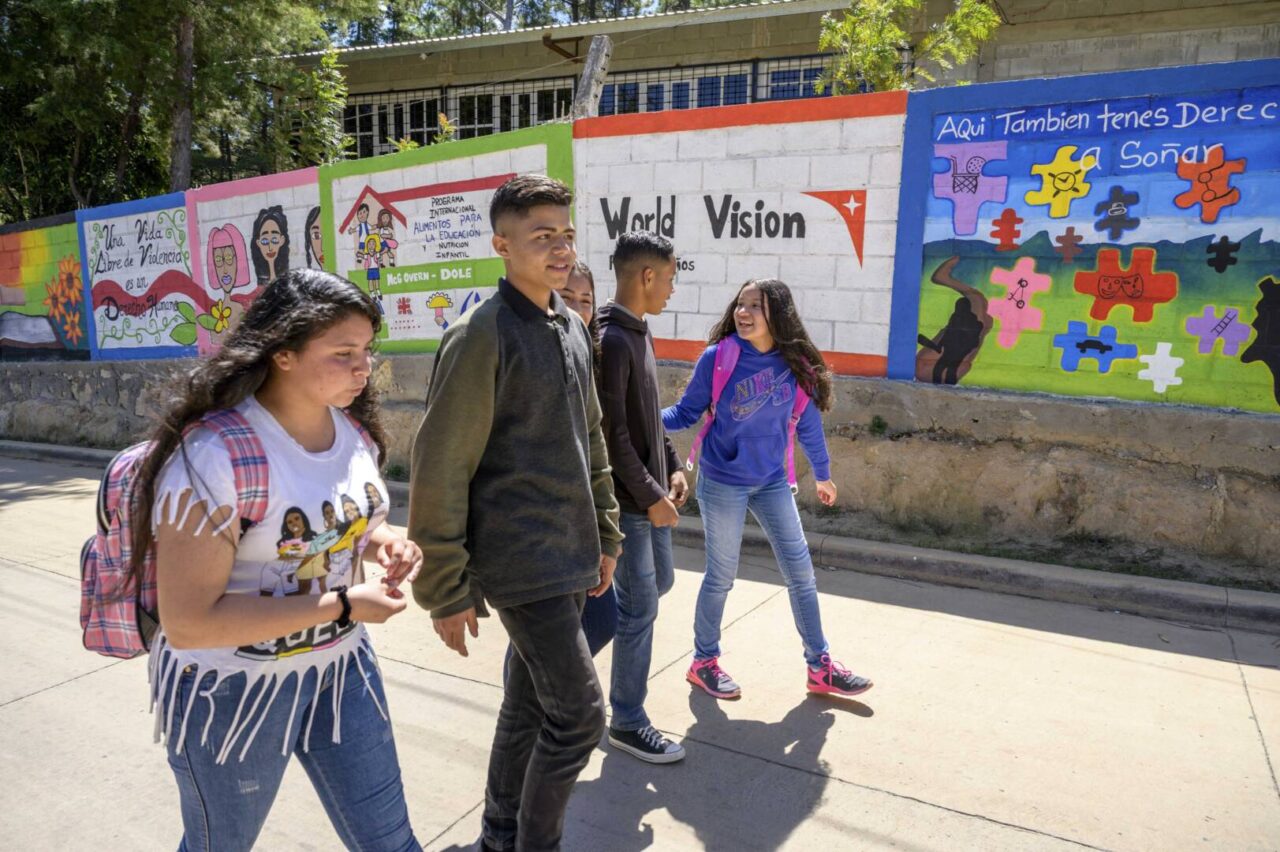
For example, 77-year-old Gregorio was sent to work growing sugar cane when he was 8. When he asked his father why he couldn’t go to third grade, he was told, “You don’t need more school. You need to learn to work hard; that’s what’s ahead of you.”
Children today hear the same thing where poverty is extreme — when there’s not enough land to work or rainfall to grow crops, or there are too many mouths in a household to feed. Under stress to cover expenses, parents may treat children harshly or see no alternative to pulling them out of school and sending them to work in the coffee fields.
“Education is the only way to fight poverty, and it’s the only way to ensure rational use of resources and create a good life,” says Yamaranguila Mayor José Rodriguez, 37. José, who was a sponsored child, credits World Vision’s support of education as one of the most important contributions to social development.
“World Vision is one of our strongest partners,” he says. “We always see results when we work together.”
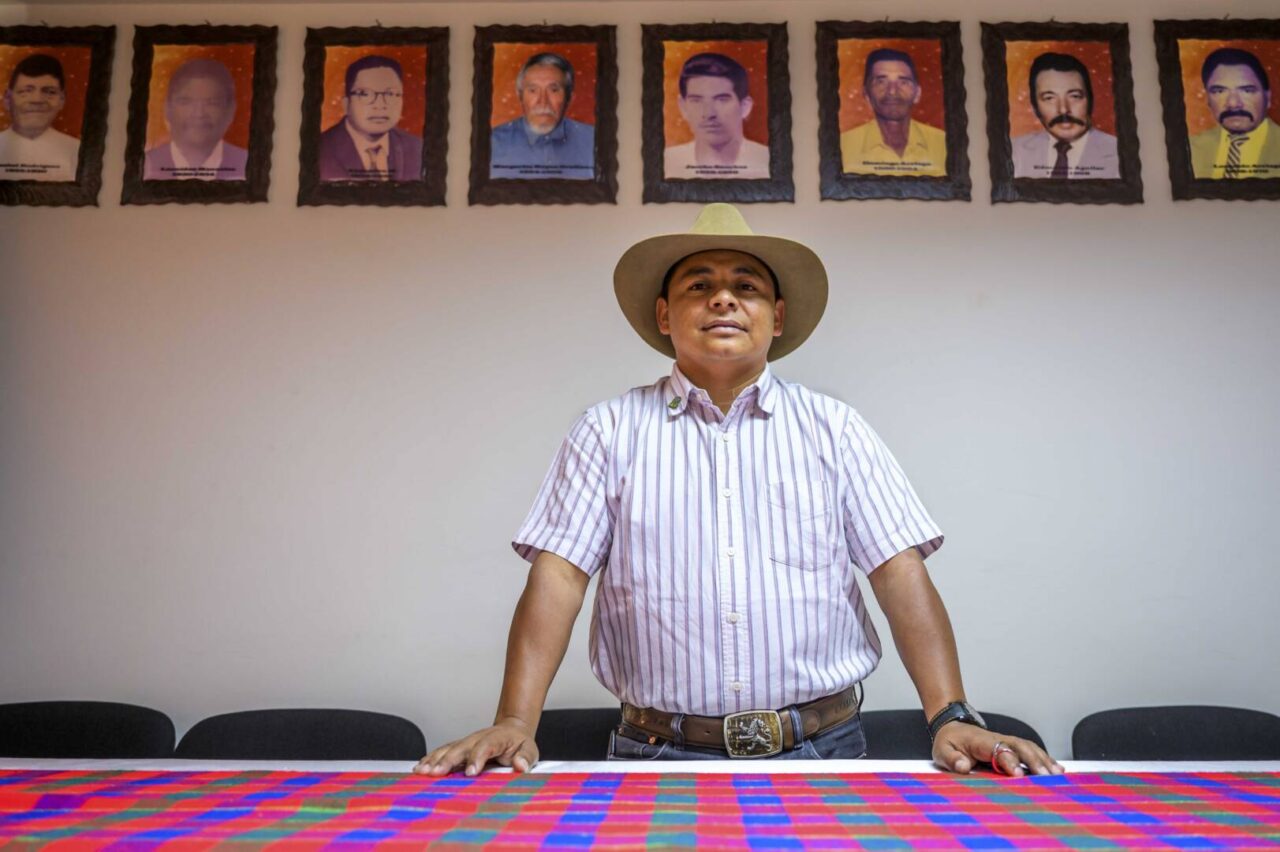
Though the World Vision logo is emblazoned on water tanks, school latrines, and even band instruments, our lasting legacy is seen in people’s lives. Staff members sparked action and then supported local efforts to improve education, healthcare, nutrition, gender equity, children’s rights, water and sanitation, and spiritual growth. It’s the community members’ ability to plan, organize, and manage their own development that has led to lasting change. Carmen, Francisco, and so many others are much more than beneficiaries of World Vision’s work — they are the force that carries it forward.
“To be most effective, we partner with community groups that have a vision for what they want to achieve and the commitment to follow through,” says Elda Solorzano, World Vision’s program manager in Yamaranguila. Community groups take the lead to identify local needs, she says. They come up with ideas to address those needs, produce a detailed plan, and then submit a proposal to request participation by the municipal government and organizations like World Vision.
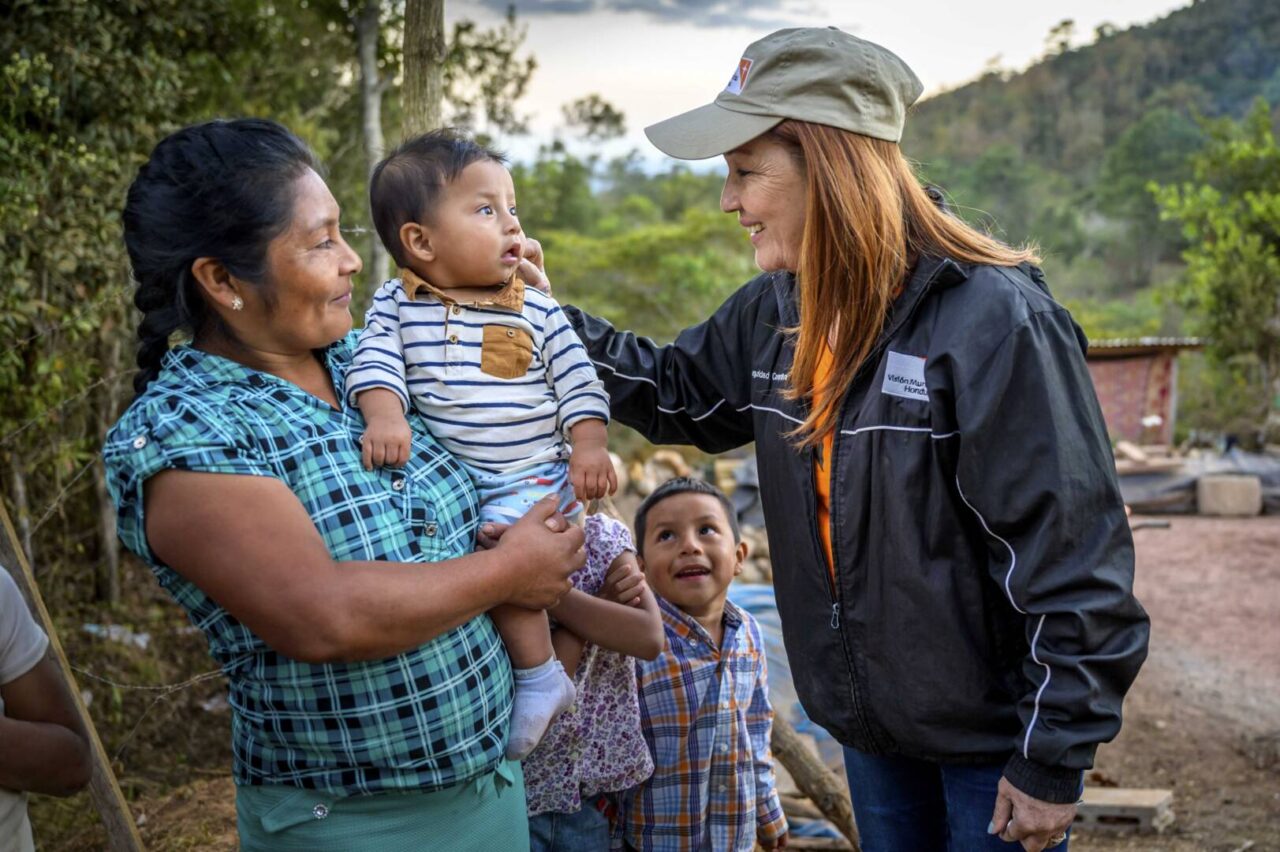
Patricia, 36, is a prime example. As women’s coordinator for Yamaranguila’s municipality, she leads programs for more than 9,000 women in 60 communities. Patricia organizes women’s groups and trains communities on domestic violence prevention and children’s and women’s rights. She also helps women start microbusinesses and keep at-risk kids in school.
“World Vision is like mother and father to me,” Patricia says. “Always nurturing, supporting my growth.” She traces her passion for social development to an opportunity World Vision gave her at age 11. With an older cousin, she learned how to tutor kindergarten-age kids left at home while their moms worked in the fields. “I’ve seen radical social change since then,” she says. Before, in Los Mangos — a rural community within Yamaranguila — children didn’t know their rights. Now they do, and so do their parents. People also understand gender rights and how to take care of the environment. They work together to prevent domestic violence and teen pregnancies.
World Vision is like mother and father to me. Always nurturing, supporting my growth. —Patricia
Patricia walks four hours to and from her weekday job in Yamaranguila, then spends weekends organizing to improve Los Mangos. She has taken every training offered through World Vision so she can contribute more. “At the root of our problems is poverty,” says Patricia. “That’s what holds back our social development.” To address poverty, Los Mangos community groups have drawn up a development plan through 2035. She says, “Our aim is to become a sustainable community, to assure the well-being of all children. We’re united in this.”
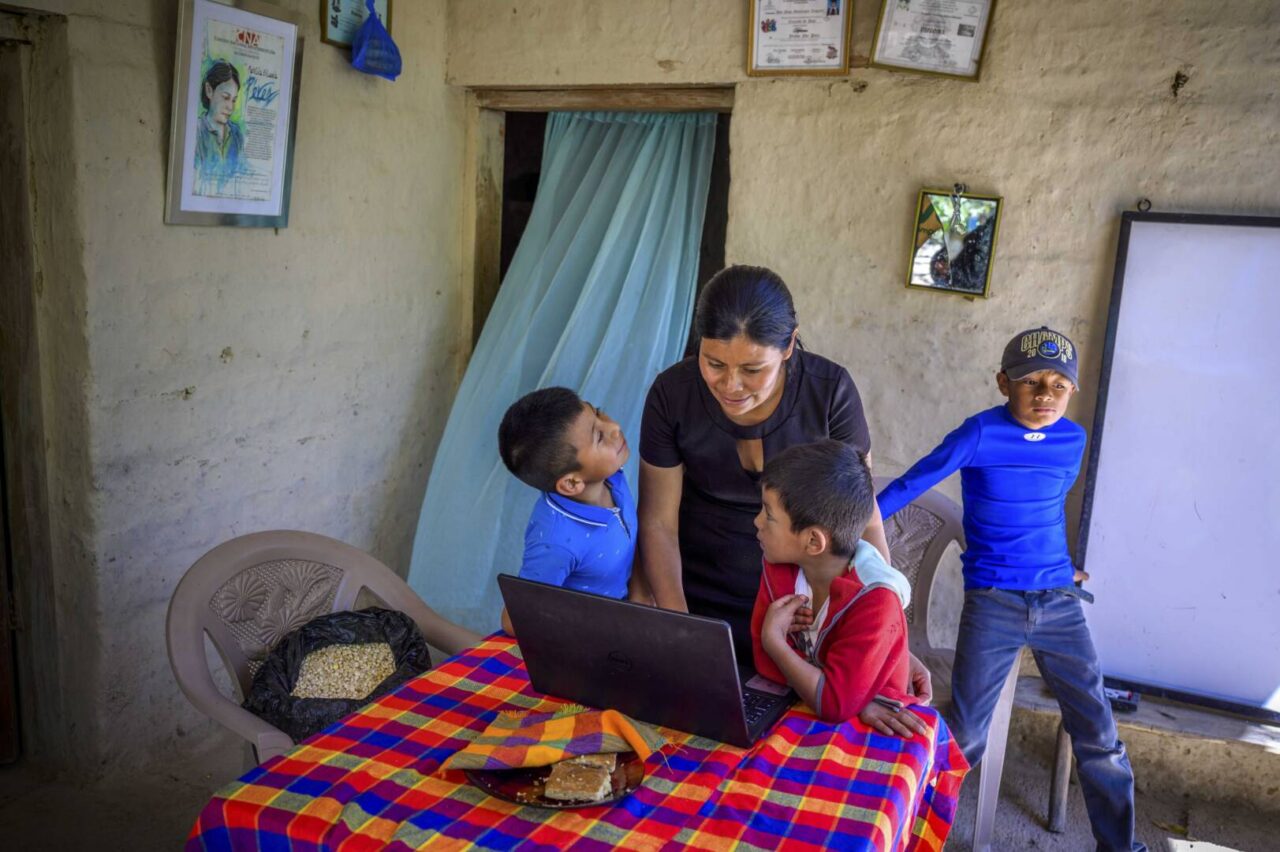
Those efforts are bearing fruit in the next generation, as they too work to promote change in the community. Thirteen-year-old sponsored child Nahomy is the youth mayor of Yamaranguila and already a child rights advocate and community organizer. Nahomy campaigned and was elected by students all over the municipality, winning twice as many votes as the other candidates. Like Selvin before her, she encourages her peers to build up their community through service. She faces difficult subjects head-on, campaigning against child marriage and teen pregnancy. When children drop out of school, Nahomy goes with the municipal child protection officer to talk to their parents and help them find solutions.
Her story gives her empathy for the social and spiritual needs of children. She lived with her grandparents for six years after her father migrated for work. But now he’s back, and she draws on all the strength of her family’s love and the support of teachers and mentors, like Mayor José, to be a beacon of hope for others.
“I want to be a doctor and start the first clinic in my community, La Puerta,” says Nahomy. “Being educated means that I can take care of my family and my community, especially my grandparents and father, who have sacrificed so much to give me opportunities.”
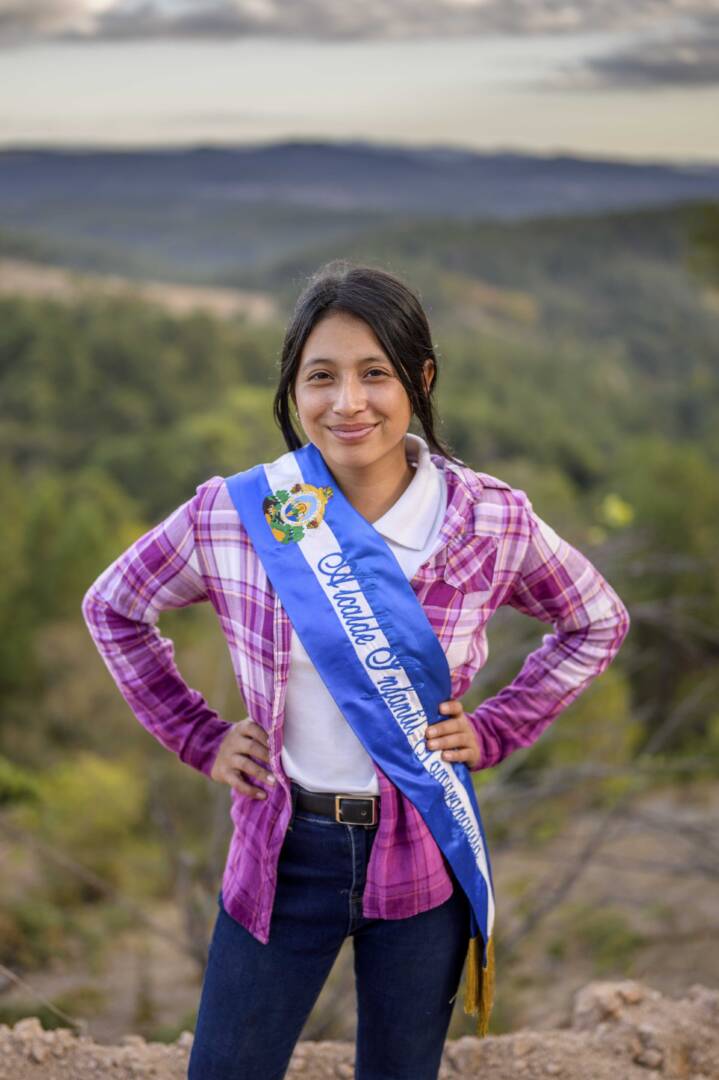
Physical changes defeat poverty
In her role as a community health monitor, Ever’s mom, Carmen, handles young mothers and their babies gently but firmly. Her voice is soothing as she quickly slips off a squalling baby’s extra clothing and suspends her in a sling to check her weight.
Every month, moms and grandmothers bring babies to the nearby community center for health checks. Toddlers are seen every three months. “When I started, we would see 10, 12, or maybe even 15 children a month that needed to go to the doctor for immediate help,” she says. Now there are no more than two or three kids each month who need to be referred to a doctor for more care.
Carmen also makes home visits to new moms to make sure they’re comfortable with breastfeeding and caring for their infant. She also teaches child development workshops. “Kids now are healthier and smarter,” she says. “Moms know more now, and they take child development more seriously.”
I’m training these mothers and my own daughters. When I’m gone, they’ll be ready to serve others. —Carmen
World Vision gave Carmen training and opportunities to refresh and expand her skills, and she wants to make sure what she’s learned will continue to benefit her community. “I’m training these mothers and my own daughters. When I’m gone, they’ll be ready to serve others,” she says.
When she sees a child who’s underweight and may have been sick, Carmen makes dietary suggestions. “We watch them, follow up, and counsel the mother,” she says.
Back before the child health monitoring started, Carmen realized one of her own daughters was malnourished. She asked friends what to do, and they helped. At the time, she never imagined that one day she’d be helping others the same way. Carmen has seen vast improvements in children’s health in her 12 years as a health monitor. Some changes she directly attributes to reduced poverty, such as improved housing. Where there used to be dirt floors, now there’s concrete. Leaky thatch roofs have been replaced with sturdy metal ones. Better housing has eliminated the chinches — commonly called “kissing bugs” — that spread Chagas disease, a parasitic infection that leads to congestive heart failure.
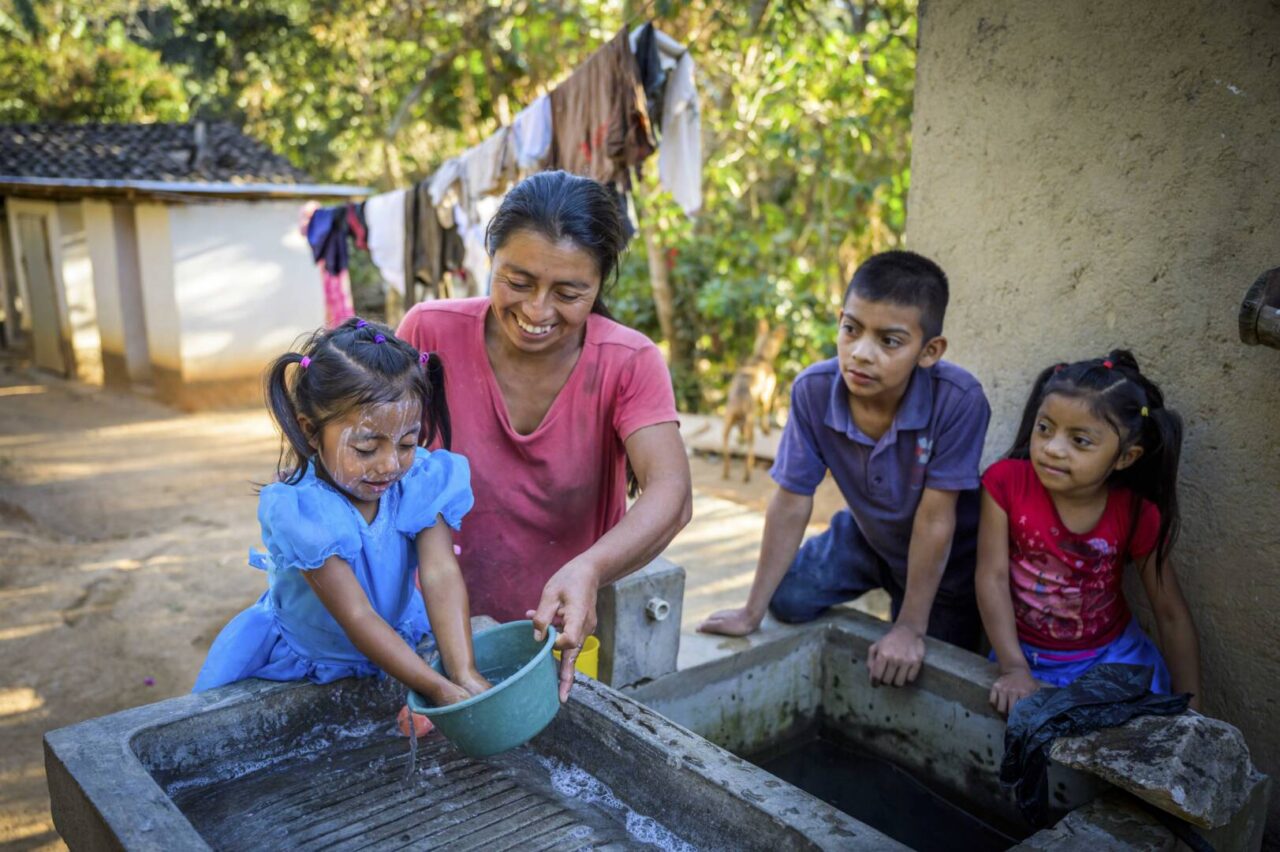
Other dramatic changes have been achieved thanks to access to clean water. The steep mountainsides surrounding Yamaranguila are now threaded with water pipes, like arteries, that connect to every home and school. “We have 100% access to clean water,” says Mayor José. “World Vision has been a major partner in that achievement.” World Vision has helped with training, organization, and construction, including water tanks, filtration systems, and water connections to schools and health centers.
Up into the 1990s, people walked miles to fill their clay pots at the river, a spring, or a shallow well. In Renpoche, one community within Yamaranguila, neighbors came together to tap a mountain spring. They worked together, carrying heavy pipes and sacks of cement high up the mountain, to build a pipeline that was completed in 2001.
“By 2017, our community had grown from 26 families to 40, and now there are 60 families,” says Water Council President José Cornelio Bautista, 38. With the influx of people, the old water system was failing, and there wasn’t enough water. To get the funding to upgrade, the water council learned how to conduct a needs assessment and put together a plan that they turned into proposals for the municipality, World Vision, and other humanitarian organizations. With community management, each partner fulfilled their role while coordinating with the others.
In this place, we have everything we need for a good life. —Alejandro Perez
The new system was inaugurated in October 2019, bringing clean water to every home in Renpoche. In each location, there are now pipes for drinking water and others for irrigation. Each community water system is managed by its own elected council. There are committees dedicated to maintenance, sanitation, and health — including encouraging families to build latrines. Council members monitor the pipes to make sure leaks are fixed right away. They also monitor water use, collect member fees that pay for upkeep and repairs, and check water quality. They are running a business in which every household is an investor — and a beneficiary.
Having access to clean water has transformed the lives of local farmers as well.
“In this place, we have everything we need for a good life,” says coffee farmer Alejandro Perez, 43. He didn’t always feel that way. In fact, there was a time when he was ready to migrate. He grew vegetables on other people’s land then, and it seemed he couldn’t catch a break from bad weather, backbreaking work, or a lack of work.
“I didn’t know how to improve my life. But I knew that if I left, I’d not only lose my land, I’d lose my family,” says Alejandro. World Vision’s THRIVE (Transforming Household Resilience in Vulnerable Environments) program helped him turn his life around. He learned how to improve his crop yields, increase his profits, and expand into other products including fruits, vegetables, chickens, and eggs. He even learned to tend tilapia ponds, harvesting and selling the protein-rich fish. “It’s good nutrition and money for my children’s education,” he says.
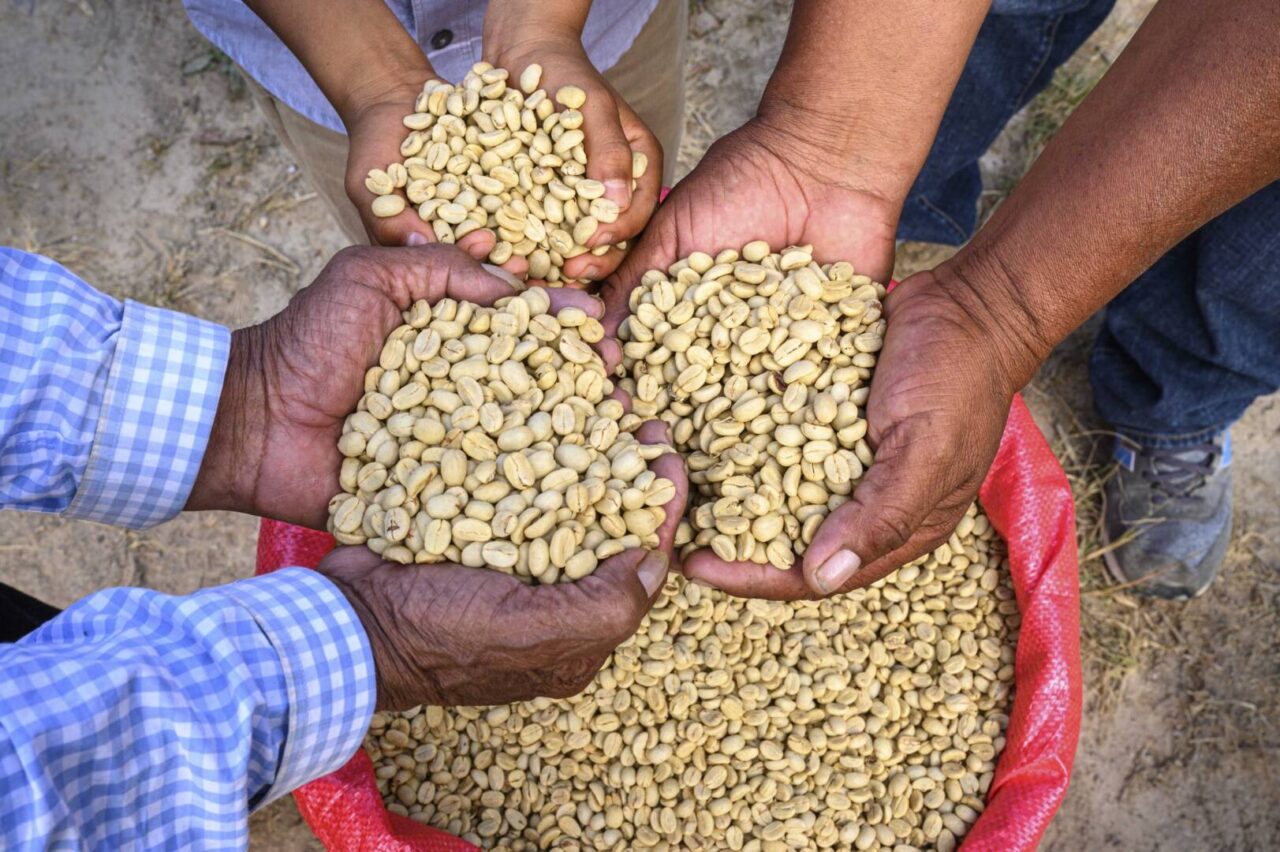
Alejandro’s formal education ended in ninth grade, but he proudly considers himself a lifelong learner because of the opportunities he’s received through World Vision. His children are evidence of community change, as his oldest son, 20, recently graduated from secondary school and plans to study coffee production in college. Alejandro’s 9-year-old son, Erlin, is a sponsored child learning to raise hens under his mom’s supervision.
And others in his 15-member growers’ group are learning from Alejandro and now follow his lead for planting, harvesting, and processing. Applying the methods he learned through THRIVE has paid off. Where the average farmer produces 30 100-pound sacks of coffee on 1 acre, Alejandro gets 100 sacks. He’s able to command a higher price, too, because his coffee is of higher quality. Even with the global price of coffee declining, Alejandro and the other coffee farmers in his group are making a profit and have strategies to remain competitive.
Spiritual changes bring new life
As a lay leader at a rural St. Francis of Assisi Church, Ever’s dad, Francisco, welcomes congregants for Bible reading and prayers three times during the week. On Sundays, he and his family walk to the cathedral in downtown Yamaranguila. He says that nurturing the community’s spiritual transformation has been World Vision’s greatest contribution to daily life.
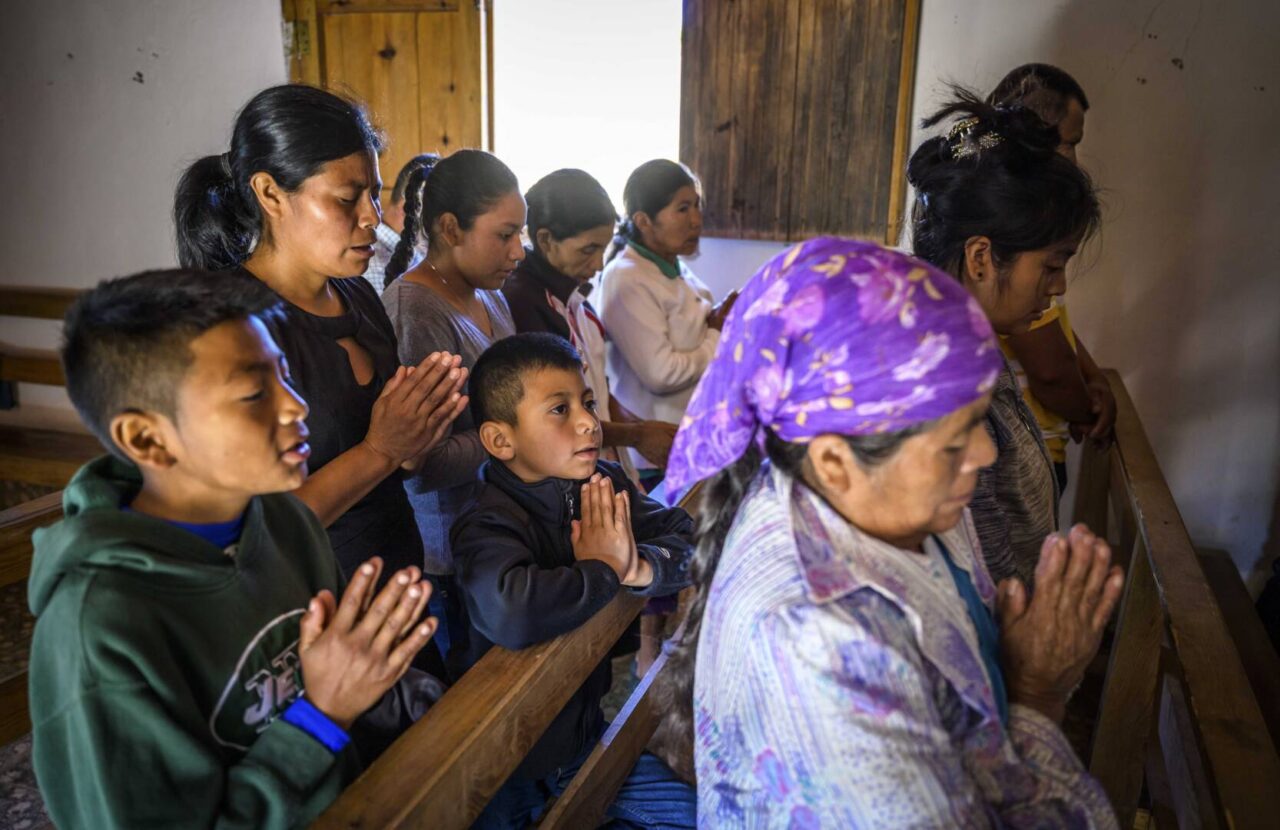
Francisco’s own spiritual transformation came in a church Bible study near the time Ever was born, 15 years ago. Already raising five daughters, Francisco struggled with alcohol, and it affected his ability to work and his family’s finances. But God was working and drew him to the church Bible study. His heart was opened to take responsibility for his actions. He turned away from alcohol and dedicated himself to his family and community.
World Vision’s Parenting with Love classes helped him come to value his own life more, for what he can do to care for his children and be a good influence on other families. Now he teaches those same parenting classes, encouraging parents to practice open communication with their children. “I really treasure even those small interactions like asking my children, ‘How are you? How was your day?’” he says with a smile. “Everyone needs to be listened to.”
In the El Pelon community, World Vision is holding the final training session of a Parenting with Love course. Church leaders hold hands and stand in a circle, asking God to help them carry new attitudes back to their church. One prays, “Thank you for a new dawn in our lives. Please give us strength to show our children a better way to live, especially in stressful times.”
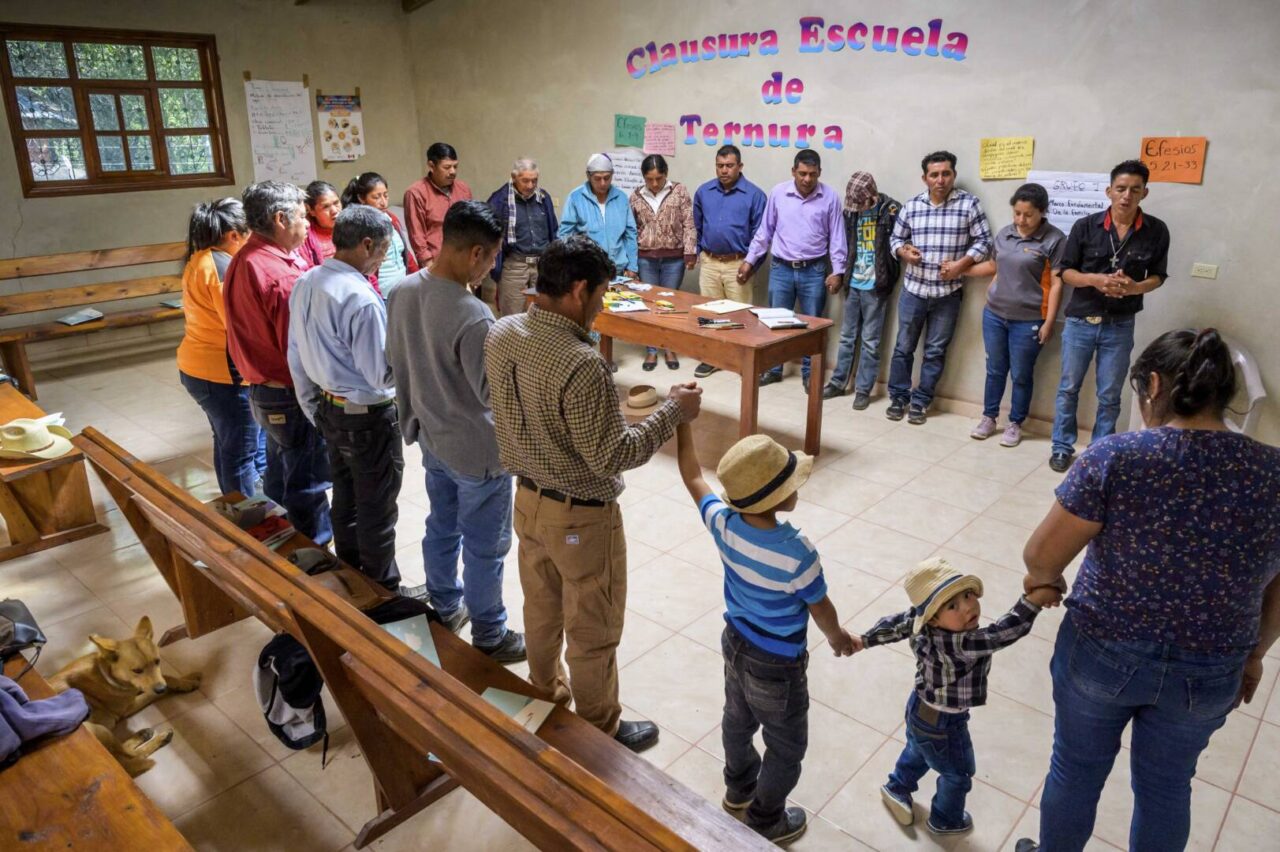
Some families in the community are held back by the effects of alcoholism, conflict between spouses, and the neglect or abuse of children — all things they don’t want to hand down to the next generation. “Before World Vision, we were barefoot poor,” says one of the participants, Wencelas Sanchez, 39. “World Vision’s training like this has been the most important thing that’s happened to lift our lives out of poverty.”
Roger, 34, didn’t attend the day’s training because of work commitments, but his wife, Yolanda, 24, and his mother, Marta, 50, did. Now their sons, 7-year-old Selvin and 2-year-old Alex, play with the colored pencils, yo-yo, and toy car that Selvin’s sponsor sent the boys at Christmas. Looking at them fondly, Roger says that World Vision training — Parenting with Love and others — supports a better life for them. “Because of World Vision, this is a better community for children. It’s safer, and there are better community ties between the church, families, and the child protection committee. There’s more caring,” he says.
Because of World Vision, this is a better community for children. It’s safer, and there are better community ties between the church, families, and the child protection committee. There’s more caring. —Roger
Mayor José, now 43, says he felt that kind of care from his World Vision sponsor when he was a child. He still has a letter his sponsor wrote encouraging him to stay in school, study, take care of his family, and pray for his family and for others’ needs. “He showed me an example of caring about others — as he cared for me — and serving others. Now, serving others is a big part of my life,” José says.
The love expressed to José, within Ever’s family, and for their larger Lenca family all attest to the transforming power of World Vision’s work in Yamaranguila.
Through our sponsorship model, World Vision has strengthened families and institutions — churches, schools, community groups, and the municipality — to support each other as they carry out social, physical, and spiritual changes on their own to make life better for everyone. World Vision sponsorship is a labor of love that connects sponsors to children and communities, empowering children like Ever and millions of others to dream of and achieve a brighter future.
Sponsor a child to make a lasting difference.
Editor’s note: The above story and photos were gathered before the COVID-19 pandemic began. Learn more below about how children and families in Yamaranguila are faring now.
Update: Life amid COVID-19
COVID-19 has been a test of the resilience of children and families in Yamaranguila. By July, there had been seven confirmed cases of COVID-19 in the population of about 20,000 people. “We’ve made sure everyone has information on the pandemic,” says Mayor José Rodriguez. Even in remote mountain villages, people are following guidelines and have faith in the health system, and “that makes me hopeful,” he says.
José estimates that 30% of jobs have been lost and a high percentage of small enterprises have closed. Ever’s father, Francisco, harvested a bumper crop from his avocado trees. Before the pandemic, he took some to a large market in La Esperanza to sell, but since then he’s sold them from home and in the Friday market in Yamaranguila.
The school year usually runs from February through November, but schools shut down in March, and the national education department says it’s uncertain when they’ll open again. For children in areas without internet access, teachers made booklets of math and Spanish assignments and delivered them. The Lenca Institute students we followed in this story continued with their work and the boys are on track to graduate.
Elda Solorzano, World Vision program manager for Yamaranguila, says the community holds firm to its vision for continuing development. Facing the pandemic has even increased their appreciation for living in the countryside and caring for natural resources.
